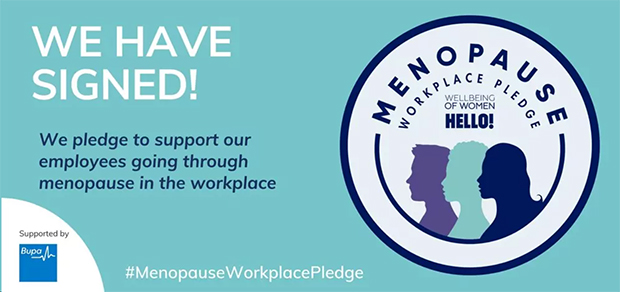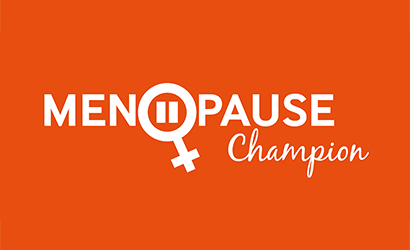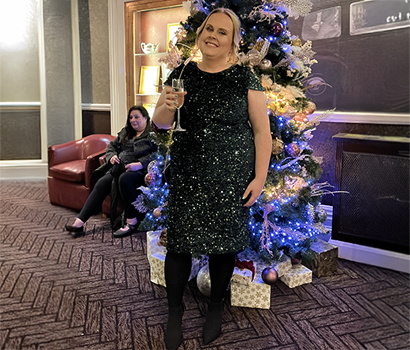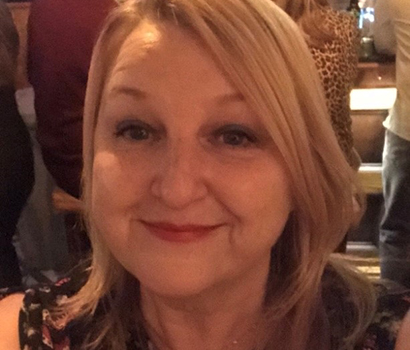Normalising menopause conversations
|

Supporting our colleagues
We've signed the Wellbeing of Women's Menopause Workplace Pledge, joining more than 2,500 companies that are committed to normalising conversations around menopause and providing the support and awareness needed. This includes helping to generate more conversations between people managers and colleagues about menopause and cultivating a more inclusive work environment.
We are partnering with Henpicked, industry leaders of menopause workplace training, to offer people managers awareness and training sessions, equipping them with the knowledge needed to support those navigating their menopause journey. Our workplace support and guidance documents are also being refreshed to ensure they are up-to-date and fit for purpose.
Survitec Menopause Champions
Many women will experience menopause. While each individual's journey is unique, it can be demanding due to physical and emotional symptoms, societal norms, and workplace stresses, frequently resulting in women exiting the workforce.
The Survitec Menopause Champions are colleagues who have formed a group and have volunteered their time to support you. They provide a safe space to discuss menopausal symptoms, offer tips for managing symptoms at work and home, and raise awareness among managers.
Champions can also connect you with professionals and support groups. In addition anyone can sign up and join monthly drop-in sessions.

Emma Entwistle’s Menopause Story
Credit and Collections Lead, Ellesmere Port

|
Emma’s menopause journey is a powerful story of resilience. In 2016, at the age of 32, Emma was diagnosed with womb cancer after enduring years of unexplained symptoms. Despite undergoing numerous tests and consultations, it wasn't until a hysteroscopy that the cancer was discovered. Emma underwent a hysterectomy, but her ovaries were initially left intact. Three years later, genetic testing revealed that Emma had Cowden syndrome, a condition that significantly increased her risk for several types of cancer, including breast, thyroid, kidney, and bowel cancer. This led to regular screenings and preventive measures, including removing her thyroid. In 2021, Emma's cancer returned, this time with a mass in her pelvis. This necessitated further surgery to remove her remaining reproductive organs, including her ovaries. The surgery induced surgical menopause, which brought on a host of challenging symptoms. Emma experienced severe anxiety, depression, joint pain, and significant hair loss, which deeply affected her confidence and overall well-being. Emma's journey also included the emotional and physical toll of chemotherapy, which she underwent as a preventive measure to reduce the risk of cancer recurrence. Balancing work and treatment, Emma faced difficulties managing her health while maintaining her professional responsibilities. |
Despite these challenges, Emma has shown remarkable strength and determination. She managed her symptoms with hormone replacement therapy (HRT) and lifestyle changes, including weight management (a result of chemo) and taking supplements like collagen and magnesium. Over time, she has gradually regained her confidence and well-being, feeling more like herself again.
The Survitec Menopause Champions provided Emma with emotional support, practical advice, and a sense of community. They offered guidance on managing symptoms, including HRT options, and helped her feel less isolated, as many of her friends have not started to experience menopause symptoms.
Now aged 41, Emma’s journey reminds us of the strength and resilience required to face such challenges and the critical role of support systems in helping individuals through difficult periods.
Learning and Development HR Partner, Julie Simkins shares her story
Her challenges and the importance of open conversations, support, and understanding for women going through this natural phase in life
|
I want to open up about my personal experience with menopause. It's a journey many of us go through, and I hope that sharing my story can provide a little bit of help and support. Around eight to nine years ago, I started noticing alterations in my menstrual cycle, indicating the beginning of perimenopause. I encountered symptoms such as brain fog and forgetfulness, which was quite unusual for me as anyone who knows me knows I’m typically sharp and always mentally alert. My perimenopausal phase was filled with profound fatigue and constant tiredness. Initially, I attributed this to my arthritis. However, the underlying cause of these issues was the ongoing internal struggle within my body. For me personally, in consultation with my doctors and taking into consideration the medication I was on for my arthritis, the risks of hormone replacement therapy (HRT) were too high. I opted to go cold turkey, which made me realise the importance of taking care of my overall well-being. During menopause, I grappled with unexplained anger and heightened reactions. My sleep pattern was disrupted, causing insomnia and making it difficult to cope with the demands of daily life, including managing stress. |

There’s also weight gain to deal with, which presents its own challenges for any woman. I've made a conscious effort to get back to the gym and be mindful of my calorie intake. I had to remind myself constantly that I was not to blame for these changes, as they are a natural part of the menopausal journey.
There’s also weight gain to deal with, which presents its own challenges for any woman. I've made a conscious effort to get back to the gym and be mindful of my calorie intake. I had to remind myself constantly that I was not to blame for these changes, as they are a natural part of the menopausal journey.
Now that I’m on the other side of menopause, I’ve learnt that it’s so important to foster open conversations, eliminate the stigma, and increase awareness to ensure support for those going through this natural phase in life. And even those who have to live or work with a women going through these changes.
Seeking support, advice, and understanding from friends, colleagues, family, and healthcare professionals and utilising resources like our employee assistance program are really useful for support and understanding.
Every woman’s experience with menopause is uniquely different and significant – thank you for allowing me to share mine.

